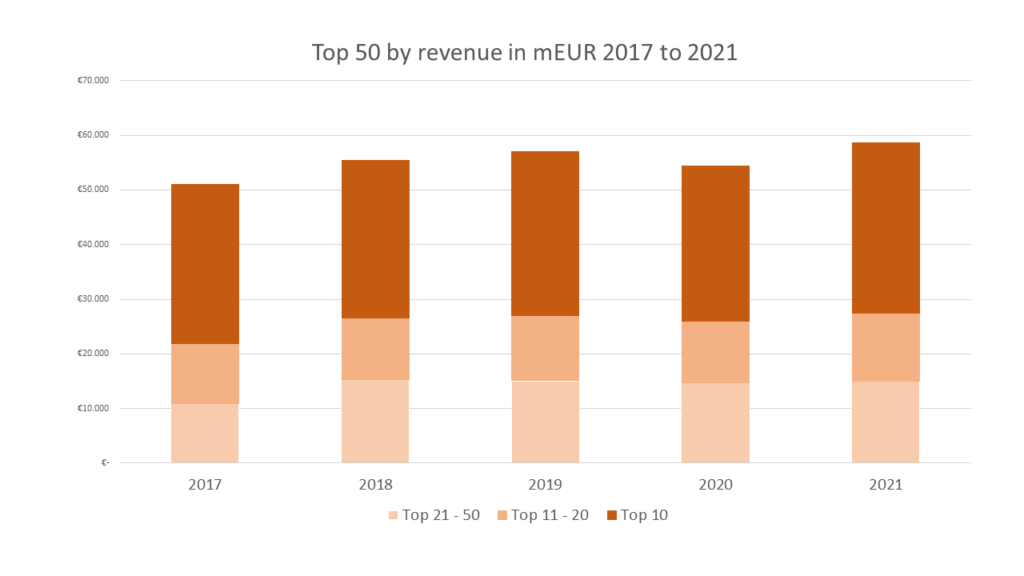„Alle kommen nach Frankfurt, weil alle nach Frankfurt kommen.“ Auf diese bewusst zum Kalauer zugespitzte Formel verständigten wir uns intern, als ich 1998 als Pressesprecher mithalf die 50. Frankfurter Buchmesse vorzubereiten.

Für Leipzig galt Ähnliches, mit leicht unterschiedlicher Fokussierung auf das „Fest der Literatur“. Doch mit einem Mal geschah das nicht Vorgesehene: Es kamen nicht ‚Alle‘. Etwas war mit einem Mal verrutscht. Aber was?
Als Oliver Zille als Direktor der Leipziger Buchmesse Mitte Januar seine bisherigen Aussteller per Fragebogen anschrieb, antworteten 83 Prozent – was einer ungewöhnlich hohen Rücklaufquote entspricht -, von denen wiederum 80 Prozent angaben, „auf jeden Fall weiter dabei zu sein“, wie die Süddeutsche Zeitung berichtet. Am 31. Januar lag die Zusage immer noch bei 75 Prozent an Zusagen. Doch am 9. Februar sah sich Zille gezwungen, die Messe abzusagen, weil eine ausreichend repräsentative Zahl an Teilnehmenden nicht mehr gewährleistet schien.
Um beim Kalauer zu bleiben: Alle wären dabei gewesen, wenn alle dabei gewesen wären. Doch kaum zeigten sich Risse im Konsens, war plötzlich alles anders. Ein brutaler Realitätsschock, der eine genauere Betrachtung erfordert.
- Die vielen Lesenden und Schreibenden
Beim Besuch der bislang letzten Leipziger Buchmesse im März 2019 fiel mir plötzlich auf, wie deutlich sichtbar hier viele völlig unterschiedliche – und auch äußerlich unterscheidbare – Gruppierungen von Lesenden (und Schreibenden und die Büchermachenden) sich in und zwischen den Messehallen tummelten. Ich begann zwischen den unterschiedlichen Bühnen hin und her zu wandern und jeweils das Publikum zu fotografieren.
Nicht allein die schon zum Messe-Selbstbild zählenden Cosplayer sprangen ins Auge. Auch die Fans vor der Fantasy Bühne, jene bei den Romance Autorinnen, die Gruppe der an literarischen Übersetzungen Interessierten und natürlich die Fanartikel Sammelnden im Seitenbereich vor den eigentlichen Messehallen bildeten jeweils sich fein voneinander unterscheidende „Demographien“.
Denn es entstand in den letzten Jahren eine besondere Qualität in Leipzig, für diese Endkunden jeweils gut erkennbare Unterbereiche zu entwickeln.
Offensichtlich ging es den Veranstaltern hier im Weichbild um diese unterschiedlichen Lesenden, und um die Schreibenden (und Zeichnenden und Gestaltenden). „Direct2Consumer“ hatte sich hier materialisiert.
Darüber entstand auch ein anderer Rahmen für die eher traditionellen Bereiche, in denen die herkömmlichen Verlage ihre in Größe und Üppigkeit immer wieder verblüffenden Stände sich neu einbetten konnten.
Allein, die Ausdifferenzierung machte gerade darüber aber auch die Bruchlinien viel deutlicher spürbar als anderswo: Die “Buchbranche“, also die so gerne beschworene Gemeinde der Buchmenschen, war längst mehr ein abstrakt wiederholtes Branchenmantra denn eine Realität.
- Die Großen und die Kleinen
Die zweimalige Absage der Messe durch Covid-19 hatte den größeren Austellern gezeigt, dass sich der Ausfall des Traditionsevents rein kaufmännisch (und es muss wohl hinzugefügt werden: kurzfristig) sehr gut durch andere, günstigere Maßnahmen auffangen ließ. Die aufwendigen Stände und Selbstdarstellungen waren plötzlich nicht mehr ein hoher Fixposten im Jahresbudget. Denn es gab Alternativen.
In den unvermeidlichen Schuldzuschreibungen nach der Absage waren die Großverlage darüber als Schurken rasch ausgemacht. Tatsächlich waren es wohl Random House und Holtzbrinck (mit den großen Publikumsmarken Rowohlt, S. Fischer, Kiepenheuer, Droemer Knaur), die die Balance der Organisatoren zum Kippen brachten.
Aber wo waren die vielen anderen aus den 80 Prozent, die noch wenige Wochen davor „auf jeden Fall“ dabei sein wollten?
Die Frankfurter Buchmesse hatte im Frühsommer 2020 einen vergleichbaren Punkt der Wahrheit erlebt, als das Management verkündete die Messe trotz Pandemie abhalten zu wollen – und in den Tagen danach von großen Verlagen per Presseaussendung hören musste, diese hätten andere Pläne.
Hier zerfällt die Buchbranche als beschworene Gemeinschaft der Buchmenschen auf offener Bühne in Akteure mit sehr unterschiedlichen Perspektiven – und wohl auch Interessen und Notwendigkeiten.
Es ist in beiden Fällen schwer nachvollziehbar, dass es hier augenscheinlich keinen großen, runden Tisch gab und gibt, an dem alle relevanten Gruppen von (großen wie auch kleineren) Akteuren so eingebunden sind, dass Weichenstellungen für diese Buchbranche verhandelt werden können – und dies dann auch die Verpflichtung inkludiert, diese gemeinsamen Entscheidungen auch öffentlich mitzutragen.
Das Verlagsgeschäft ist gewiss die größte unter den Kulturindustrien, doch am Ende kennt man sich doch recht gut, auch zwischen den Großen und den zahlreichen Kleinen. Die Branchenvertretung gibt überdies mit viel Selbstbewusstsein an, unter einem gemeinsamen Dach alle Beteiligten entlang der gesamten Wertschöpfungskette im Buchgeschäft zu vertreten. Nun, zumindest alle abgesehen von den Schreibenden und den Lesenden.
Was war hier geschehen?
Das Grundproblem ist jedenfalls nicht spezifisch deutsch.
Aus Frankreich erreicht uns eben die Notiz, wonach beim neu geschaffenen „Festival du livre de Paris“ die Vereinigung der Regionen nicht mitmacht, nicht zuletzt, weil Selbstverlage und selbst verlegende Autorinnen und Autoren nicht zum großen Festival zugelassen werden.
In New York ist nach Jahren der zunehmenden Erosion die größte Business Veranstaltung der Buchbranche, die BookExpo America, de facto eingestellt worden. Immer weniger war den großen Akteuren in der nationalen Book Industry zu vermitteln gewesen, warum sie sich Raum und Aufmerksamkeit mit allen möglichen Anderen aus der vermeintlich gemeinsamen Branche hätten teilen sollen. Lieber arrangierten jene, die es konnten, die Meetings in den eigenen Büros in Manhattan. Da blieb man unter sich.
- Die große Drift – wohin?
In der Gemengelage, die zur Absage der Leipziger Buchmesse führte, und noch deutlicher in der nunmehrigen Kontroverse um diese Absage werden Kräfte sichtbar, die weit über die unmittelbaren Auswirkungen der Pandemie hinausgehen.
Unter dem Brennglas der Pandemie wird deutlich, wie Besitzstände, die lange unter dem gemeinsamen und auch bequemen Dach der gemeinschaftlichen Buchbranche gut koexistieren konnten, nun auseinanderdriften.
Dabei geht es nicht allein um die unterschiedlichen Interessenslagen zwischen Handel und Verlagen, zwischen Konzernen versus vielfältige, kleinere Akteure, und dann noch der bedeutenden Gruppe der mittelgroßen Akteure dazwischen, die unter dem sich verschärfenden wirtschaftlichen Wettbewerb es besonders schwer haben sich kenntlich und erfolgreich zu positionieren, jeweils im Handel wie auch bei den Verlagen. Und dann gibt es da noch, als Mega-Player und Konkurrent, Amazon.
Noch gar nicht erwähnt sind dabei die einzigartige Rolle von Leipzig für spezielle Ziel- und Nutzergruppen: Als wichtigster jährliche Begegnungsort für die kleinteilig verästelten Literaturen Zentral-, Ost und Südosteuropas, die Übersetzungsforen, oder – eingangs kurz angesprochen – der ganze Bereich des Selfpublishing, welcher längst aus Sicht der Lesenden mit seinem breiten Fußabdruck die Buchlandschaften mitprägt.
Das alles lässt sich offenbar kaum noch unter einen Branchenhut bringen.
- Messe versus Festival versus Platform
Meine größte Verblüffung bei der Absage der Leipziger Buchmesse war das damit einher gehende Aus von „Leipzig Liest“. Weshalb sollten dezentrale Begegnungen zwischen Schreibenden und Lesenden (und Zuhörenden) pauschal nicht stattfinden können? Ohne erst einmal, hier und dort, unter den sehr unterschiedlichen Veranstaltenden nachzufragen. Auch ohne, nach zwei Jahren pandemischer Erprobung, auch kurzfristige Hybrid-Arrangements erst einmal zu bedenken.
‚Alle – oder zumindest viele – lesen, weil so viele lesen wollen‘, dies wäre gerade vor dem Erfahrungshintergrund der eingangs in Erinnerung gerufenen vielen diversen Gemeinschaften von Lesenden und Schreibenden in Leipzig die näher liegende Entscheidung gewesen.
Aber gab es überhaupt eine entsprechende Gesprächsrunde, die solch eine breite Entscheidung hätte erkunden und erst im weiteren Schritt treffen wollen? Oder müssen wir uns ein Messemanagement vorstellen, das am Ende des Tages in sehr kleiner Besetzung letztlich, mangels ausreichender Zusagen hatte den Daumen senken müssen – und nun riskiert allein alle Verantwortung, also Schuld, aufgeladen zu bekommen?
Anders – und provokanter – gefragt: Sind eine Buchmesse – oder auch ein Lese-Festival – notwendigerweise ein Format, das allein die Veranstalter bestimmen? Sind Messen, viel bescheidener, und wohl auch weniger emphatisch aufgeladen einfach Plattformen?
Eine Plattform hat schafft einen Rahmen für unterschiedliche Nutzungen, mit eher losen Spielregeln, In Leipzig liegt dabei der Fokus auf den Schreibenden und den Lesenden plus die regionale zentraleuropäische Dimension. In Frankfurt geht es um das Buchgeschäft, mit Rechtehandel Vertrieb, Dienstleistungen, Technologie, plus das international sehr relevante Engagement für unzensiertes Publizieren.
Dies hier ist kein Abgesang auf Buchmessen. Aber ich denke, die Zäsur, die die Absage von Leipzig markiert, ist von grundsätzlicher Natur. Sie gilt nicht nur der Messe im März 2022, sondern dem bequemen und pathetisch überhöhten, jedoch aus der praktischen Wirklichkeit von Produzenten wie Konsumenten gefallenen Modell einer ‚alles umfassenden Buchbranche‘.











